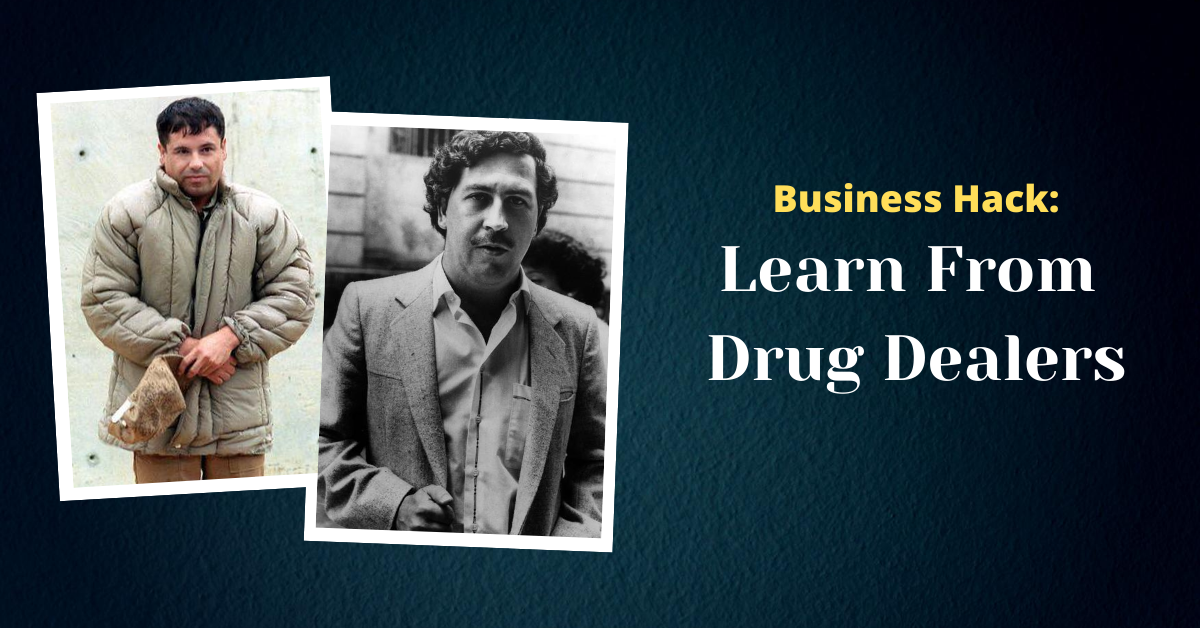Do you know what drug dealers, dogs and beggars have in common?
They all hold the secrets to an exceptional life.
Let me explain…
Beggars

I once asked my mentor “Who’s your coach?” and I was astonished when he told me it was the street beggars of Mumbai, India.
It was early 2018 and I’d moved to Dubai to learn everything I could from a man who coached Dubai’s multi-millionaire CEOs.
When I pressed him further, he said:
“I once observed the beggars of Mumbai. They stood fearlessly in the road as the thousands of cars jostle for space around them. I noticed them knock on the windows of cars at a red light and ask for money. Most drivers ignored them and some shooed them away rudely. But a handful give them a few coins, though not even enough to buy the cheapest food. But those beggars taught me resilience.”
Those beggars were my mentors coaches, because they didn’t let rejection stop them. He was captivated by their bounce back speed. He told me that the successful CEO’s he coaches take weeks to recover from a simple missed deal, yet these beggars got right back to their objective in seconds.
On that day I learned this powerful lesson:
Don’t focus on who the teacher is, but instead focus on being a good student.
Dogs

Years before the Dubai experience, I was being mentored by another super successful entrepreneur called Marc.
Marc had made £29 million at 29 years old, so he had my attention. But when I asked him who his mentor was, what he said next shocked me:
“My mentor is my dog, Henry.”
Confused and slightly annoyed by this “stupid and not practical” answer I pressed Marc to be more specific.
Mark explained how Henry had everything figured out and running like clockwork.
The humans ran around after him (Marc included), making sure he was fed, healthy and comfortable. Best of all, Henry was the most popular person in the house!
So Henry became Marc’s hero and Marc’s modelled his life on Man’s Best Friend ever since.
Drug Dealers
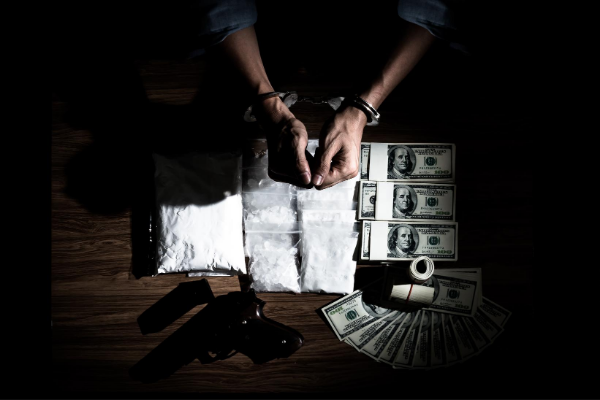
Since those formative experiences, I committed to learning from every source without judgement.
I’ve often learned some of the most insightful things from people society passes over. Its amazing what pearls janitors, night security guards and the homeless have bestowed upon me over the years.
Drug dealers have always fascinated me. Since I read “Killing Pablo – The Hunt for The World’s Greatest Outlaw” back when I was 14 I realised these guys knew as much about business as any Harvard educated CEO.
The fact they could thrive in a cutthroat environment with so many risks and dangers made an impact on me. It requires a special set of skills to get a business started and growing with law enforcement watching then, ruthless rivals a few blocks away and their own workers plotting to betray them to take their position.
I wanted to know if the same principles they used could be applied to the legal business world. After many years running my own business, I am now certain the lessons I’d extracted actually worked!
I kept this to myself as my “Growth Playbook” and never revealed it. Now I’ve moved away from that business I’m sharing them for the first time.
Listen To Your Customer
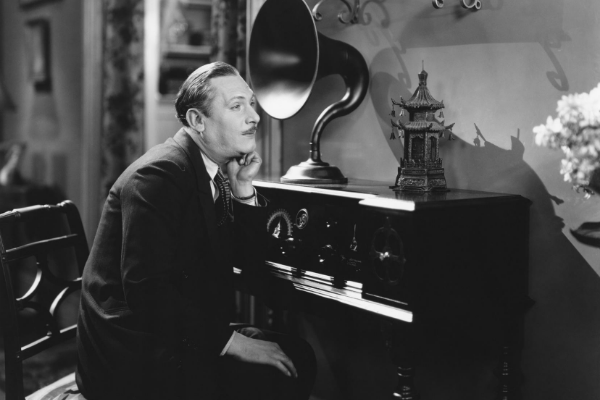
The movie Paid in Full covers the real life story of three Harlem drug dealers during the Crack Era of the 1980’s.
The young Azie Faison works in a dry cleaners and he finds some cocaine in a customers trousers. The next day as he’s walking through the lobby of his building to go to work, a user asks him if he has anything for sale.
Remembering the cocaine he found, he gives it to the user and makes a quick $100.
What he didn’t know was he gave the user pure cocaine (rather than the watered down version dealers “cut” to maximise their profits). Azie also unknowingly sold it too cheap considering the amount he gave the user.
The next day the user was back. Azie smartly asked the user to school him about the drug.
He learned that purity and quantity was highly valued by his customers so he decided not to cut the drugs to try to maximise profits, but instead to give his customers the best deal, knowing he’d secure their loyalty in return.
Here’s the scene:
Azie was wise enough to listen to his customer and what he learned allowed the 20 year old New Yorker to go from his first deal to being the Biggest Distributor of Cocaine in New York State in a few short years.
How You Can Use This Strategy
Too many business owners use their business as their message to the world. The business becomes about them.
Instead make your business about your customer and serve them better than anyone else. Be the most interested, most engaged and most responsive. Ask, listen and implement the changes they want.
Try it today – Send a personal and friendly email to 5 customers asking simply “What can we do to serve you better?”
Then watch the magic pour in.
Referrals are King
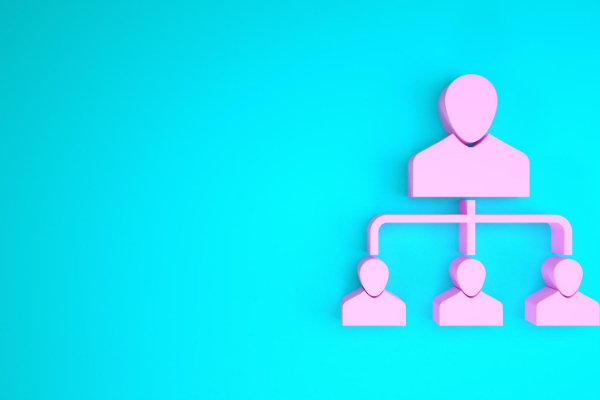
There are 2 ways to get more customers:
- Marketing
- Referrals
Marketing covers everything from branding, running ads, doing social media and everything in between. Referrals are when your existing customers recommend you to people they know.
The beauty of referrals is they don’t cost you much if any money, compared to marketing which can easily run to thousands of dollars a month.
Drug dealers can’t exactly buy billboards – actually, BMF the Black Mafia Family did exactly that in Atlanta, which eventually motivated the FBI to arrest and jail BMF:
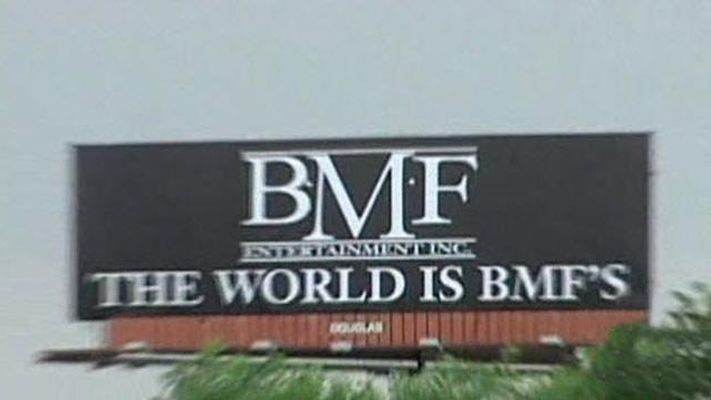
Let me rephrase that, smart drug dealers don’t buy billboards.
What they do, is leverage referrals. They do whatever they can to become the sole dealer to the biggest spending users. They do it for 2 reasons:
1) They want a high-spending, high-frequency customer
2) They want them to bring their friends who are likely to also be high-frequency users
The smartest dealers do this by incentivising their high rollers. They give them extra product for every new customer they refer which is essentially building a sales force.
But smartest of all, the sales force isn’t the bosses workers, but rather other users. We buy from people like us, so doing this means new customers come in faster.
How You Can Use This Strategy
Here’s the steps to implement this strategy:
- Make a list of your top 10 customers – the people you’d clone if you could.
- Work out how much they spend with you each year roughly – That’s the likely value of a referral from them. Now decide what you’ll give them in return for a referral.
- Don’t be cheap – If a new customer spends $10k with you a year, don’t be afraid to reward the referrer with up to 25% ($2.5k). If you don’t do it you won’t make any more money, but if you do you’ll collect $7.5k in year one then $10k a year for every year they stay with you.
- Exchange Value – Now you know how much you’ll spend to acquire a new customer, decide what you’ll give them that equates to that value. Here’s some proven to work examples to choose from:
- Price breaks when they buy from you (Savings like voucher codes or special offers)
- VIP only services not available elsewhere (Invite Only Private Event)
- More of what they are already buying (e.g. Dropbox gives you more storage space)
- Desirable Products – Reward them with an iPhone, iPad, Smart Watch or any sought after consumer electronics
- Access To Things They Can’t Buy – 2 Superbowl tickets on the halfway line
- Experiences that make them look good – A weekend away for 2 they can secretly give to their spouse
Give Out Free Samples
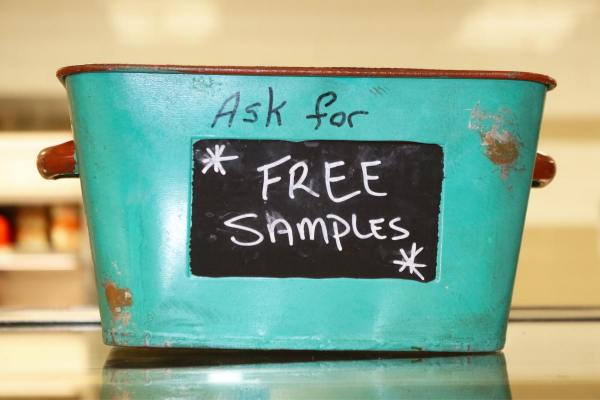
New dealers know they need to get their name out there quickly, so they give out free drugs. They’ll typically give out the purest quality product in generous sizes to attract a new audience.
They know that people don’t like to buy from untrusted sources. Drug users re especially suspicious as most have had bad experiences in the past.
To overcome the “Know, Like and Trust” barrier, the dealers have to offer a deal that makes users take a chance on them.
How You Can Use This Strategy
A common mistake business owners make is trying to sell to strangers.
The way to overcome this is to offer value upfront – give your customer something desirable and give it to them for free.
Make sure it doesn’t have any barriers, small print or hoops they have to jump through to get it and it certainly shouldn’t involve any risk or obligations for them.
By doing this you’ll get more potential customers getting to know, like and trust you – as you’re letting them see how good your products are and experience what its like doing business with you.
Make sure the offer is related to the product you actually sell – If you’re an accountant offer to audit their payslip for potential tax savings (so you can offer them tax services later). Its important that the people taking your free offer are potential ideal customers.
Audits and Consultations that uncover problems or showcase how their current deal isn’t as good as it could be are powerful offers.
Here’s some practical examples you can adapt for your business:
- Personal Trainers – Offer a free 60 minute training session
- Nutritionists – Offer a free body fat analysis
- Web Developers – Offer a free website audit
- Marketing People – Offer a free strategy consultation
The Best Product, At The Best Price Wins

Have you seen American Gangster?
In that movie, Denzel Washington is fresh back from serving as a soldier in Vietnam. He noticed many soldiers used Heroin to help them deal with the horrors of war and they were returning back to the U.S.
Ever the opportunist, he sets up shop selling heroin by going directly to into the jungles of Vietnam to get the purest heroin he can. Just like many of the other dealers we’ve covered, Denzel’s character Frank Lucas realised he could win by selling the addicts a stronger product at the same price.
His product was given a brand – Blue Magic – and it became famous on the street because it guaranteed a level of quality. In the movie, Frank Lucas confronts fellow Harlem Kingpin Nicky “Mr Untouchable” Barnes because he was also selling heroin with the “Blue Magic” brand.
Lucas tells Barnes:
Brand names mean something, Nicky. Consumers rely on them to know what they’re getting. They know the company isn’t going to try to fool them with an inferior product. They buy a Ford, they know they’re gonna get a Ford. Not a f***in’ Datsun. Blue Magic that’s a brand name; Like Pepsi, that’s a brand name. I stand behind it, I guarantee it. They know that even if they don’t know me any more than they know the chairman of General Mills.
Frank Lucas, American Gangster
Here’s the scene:
How You Can Use This Strategy
Think of your business like a brand. What do you want to be known for? What do you guarantee?
Even if you can’t compete on price, you can compete on quality.
Remember, every customer wants two things: To get the job done 1) faster and 2) without problems.
How can you make things faster and reduce the risk of things going wrong?
If you product is a commodity (everyone has the same product), can you offer a better price? If not, can you bundle it with something else to give the customer more value?
By offering a better or more comprehensive product at the same price or cheaper than the competition is a sure fire path to increased profits.
Protect Your Territory
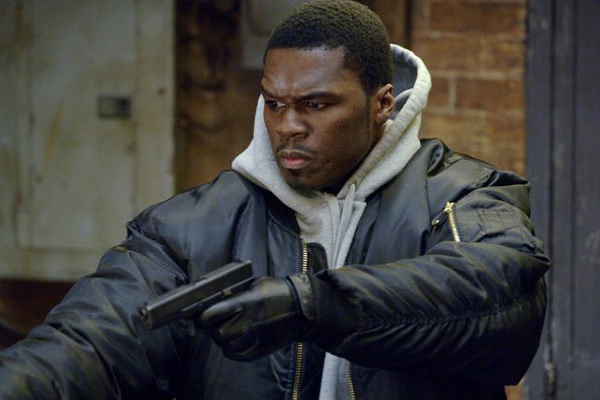
When you have an income stream, other people will want to take it from you.
Drug dealers know that better than anyone. When you live in a deprived area, with few opportunities, anything that gets you paid is highly sought after.
With survival on the line, the laws of the jungle apply.
To be in control of an area which is known for producing cash means you’re an immediate target. Being out in the open means everyone knows how much money you’re making and you’re always visible (which makes you an easy target).
When rivals come, protecting your money tree is the only thing that matters.
The drug dealers that last know when to fight and when to be strategic.
How You Can Use This Strategy
Business is like the streets, when you are the one getting the clientele, you have to protect your income stream.
Competitors will watch what you do. The honest ones will try to better your offer, the dishonest will try to put you out of business.
For dealing with the dishonest, the best resource is The 48 Laws of Power.
For everyone else, focus your energy on serving the customer rather than beating your competition. The customer is the one who rewards you with their business, treat them right and they’ll come back to you over and over.
Always think long-term – value the relationship over short term cash.
The Loud Ones Don’t Last

Have you watched Narcos yet?
If you said no, go and do that right now. Seriously, its that good.
What almost every drug dealer story or movie tells the same story – the loud ones don’t last:
The Cali Cartel & Pablo Escobar
Escobar wanted the people to love him (because he had low-self esteem from growing up poor) to the extent he wanted to become President of Colombia.
From being on the 1987 Forbes Billionaires list to visiting the White House while he was the most wanted man in the world marked Pablo as public enemy number one.
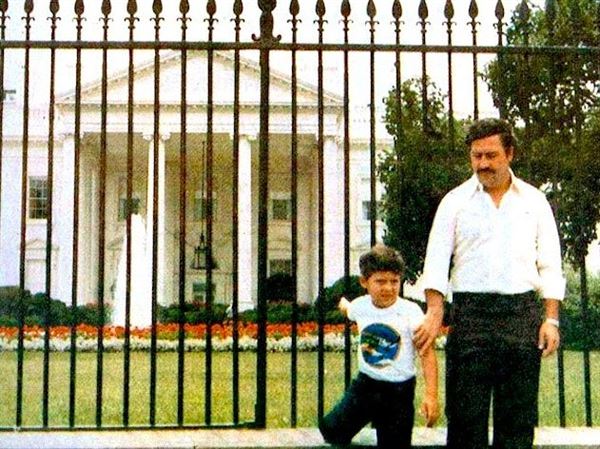
Being so visible brought problems and the desire for power meant he wasn’t beyond becoming the world’s first narcoterrorist – blowing up buildings and even blowing a passenger aeroplane out of the sky killing all 107 onboard.
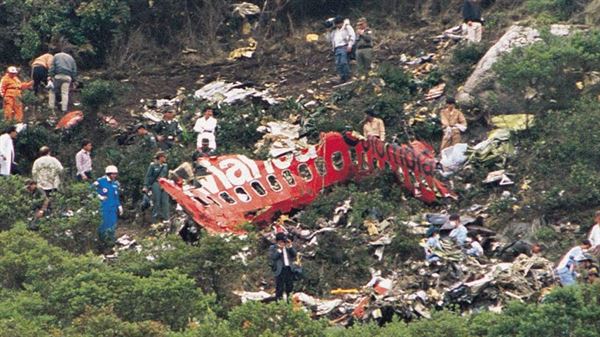
Pablo’s mix of publicity and terror brought his life to an abrupt end on a roof in his home city of Medellin.
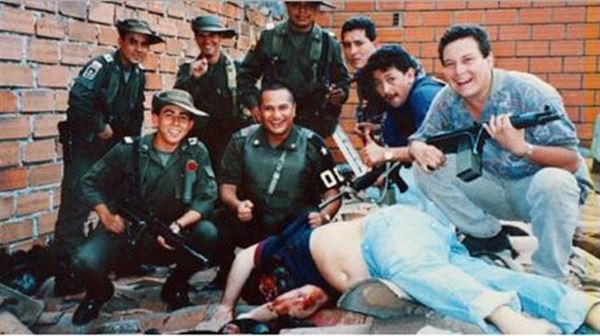
In comparison, the Cali Cartel were savvy, quiet businessmen and as a result they took things to a level beyond what Pablo could achieve.
Javier Peña, the DEA agent who caught Escobar (and evenually the Cali godfathers) said this:
“What we noticed was that Cali cartel had learned from the Medellin cartel not to make those types of mistakes. For example, I call the Medellin cartel ‘wild, wild west’; Cali cartel was more business-like. They were more organized; they had more business savvy.”
Javier Peña, DEA
The leader of the cartel, Gilberto Rodriguez Orejuela, was known as “the Chess Player,” because of his focus on business and his preferring bribery to violence.
Cali eventually fell (no one gets out of drug world alive and free), but their quiet approach gave them longevity and more profits and power than Escobar could ever manage.
Frank Lucas & Nicky Barnes
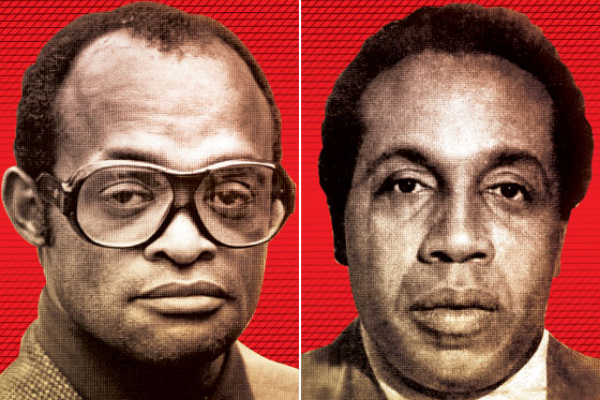
In American Gangster, one of my favourite movies you see the quiet Frank Lucas operating in the same Harlem drug market as the loud and flamboyant Nicky Barnes.
Barnes courted the limelight and the media, so much so, he ended up on the cover of The New York Times who called him “Mr Untouchable”.
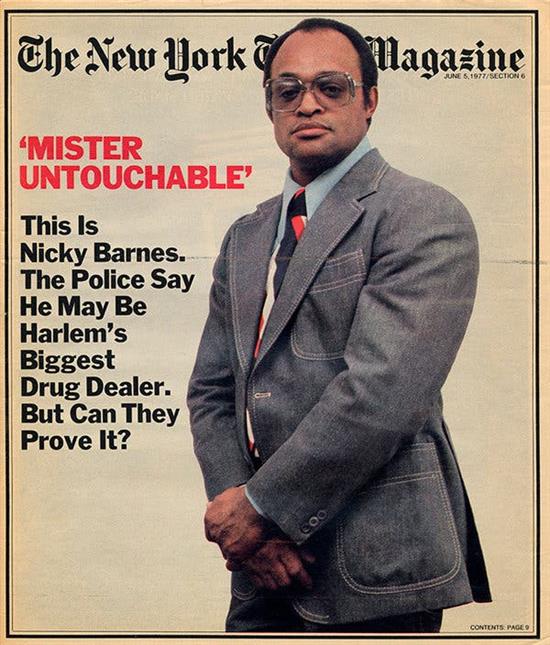
In this scene, we see Frank school his brother about being too loud (like Nicky) and he tells his this pearl:
“The loudest one in the room is the weakest on in the room.”
Frank Lucas, American Gangster
Here’s the scene:
Ironically, Lucas’ downfall was attending a high-profile Joe Lewis Heavyweight fight wearing an attention getting fur jacket. That jacket caused the DEA to take a picture of him so they could find out who he was.
That photo alone sparked the investigation that brought Lucas down.
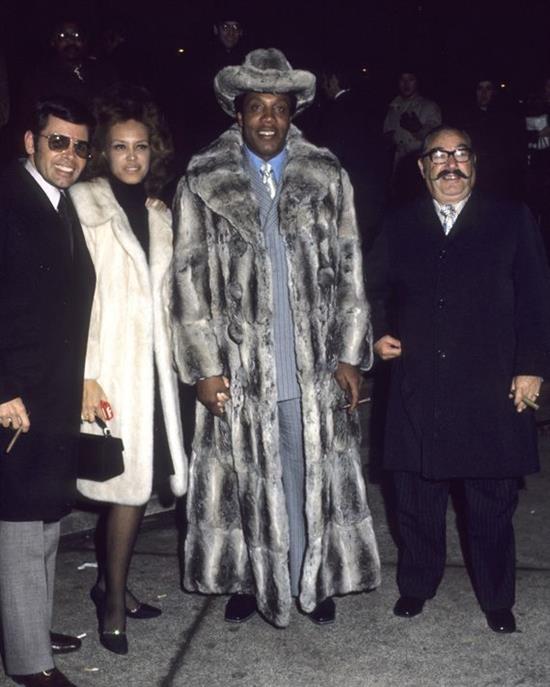
How You Can Use This Strategy
The 48 Laws of Power reveals how important it is to move in silence:
- Law 3: Conceal Your Intentions
- Law 4: Always Say Less than Necessary
However it does also state:
- Law 6: Court Attention at All Costs
The key to making this work is to maintain the attention of the people that matter (your prospects and customers) so you can influence them, whilst keeping your competition in the dark about your next move.
Secondly, focus on winning the war, not the battle. Pablo’s ego meant he couldn’t take a single loss or he’d feel weak. Sometimes its smarter to let your competitor believe they’ve won, while you’re focusing on winning the overall battle.
For me, I don’t focus on beating my competitor, I focus on better serving my audience. One is short-term and focused on the competitor, the other is long-term and externally on the custoer.
Focusing on and serving the customer better than anyone else is always a winning strategy.
Distribution Amplifies Profits

All dealers start out solo and as the profits grow, they acquire a team of workers to help sell more.
Each worker becomes a mini business or a franchise – like opening another branch to access another local market.
This is how it goes down:
Once your product is refined enough to sell consistently, its time to expand distribution.
More sales equals more profits, even if you have to reduce your profit margin so your workers can take a piece of the action.
How You Can Use This Strategy
If you currently sell your product or service directly to your customer. your money flow is limited by:
- a) how many people you can reach and;
- b) how many people you can sell.
To expand your profits, you need to increase your distribution (the number of places your product is sold).
To do that (without cost), we need to find salespeople who will work for commission only.
Finding Commission-Only Salespeople
You can do that by reducing how much money you make on the sale of each product and giving a generous slice to the person who will sell the product.
For example, if you’re making 45% on the sale, don’t be afraid to give away 10-20% as a commission to the salesperson. It has to be meaty enough to make it interesting.
How To Choose The Best Commission-Only Sales People
When choosing the people to sell your product, start with people who already have access to your target market.
For example, if you are a nutritionist selling meal plans, don’t get your aunt to sell to her overweight friends, instead partner with a personal trainer. The PT already has access to your ideal customer (doing something to get in shape and actively spending money to achieve it).
The PT doesn’t have to “sell” it – they just say “This will help you achieve your goal faster” – BOOM. Deal done, the customer gets faster results and the PT just made some extra cash without any effort.
More Users = More Leverage

Drug dealers start out buying small quantities from the dealer who is next up on the food chain. Over time, they make more money and need to buy bigger quantities. Buying more means you pay less and paying les amplifies your profits.
What it also does is amplifies your leverage. You not only get better prices, but better payment terms.
The biggest drug suppliers are known as “Consignment Kings” – they supply their drugs to smaller dealers (who buy large quantities) for free. Once the dealer sells all of the product, he pays back the consignment king.
Having a large user base means the consignment kings trust the dealers to move a lot of drugs (called “weight” after the kilos) quickly – which gives them their profits faster.
More customers lets you buy more of your raw materials at a lower price which amplifies your profits.
How You Can Use This Strategy
To gain leverage, you simply need to gain more customers.
The fastest way to gain more customers is to partner with people who already have access to your ideal customers. We already covered that in the Distribution Amplifies Profits section.
Your profit increase is actually two-fold – whilst its true you’re making less profit per sale (as your giving a commission to your partners), you’re making more overall profit because of two things:
1) You’re selling more products
2) There’s zero marketing cost to get these new customers
Once you’re profits and customer base is swelling, use that leverage to negotiate better terms from your suppliers.
Final Thoughts
When you start a business and you’re trying to grow it, its normal you’ll seek out the business books and popular business speakers.
Here’s the problem with that…
- Most authors don’t run successful businesses – they just sell books
- Most speakers only make money by speaking
Both groups make money by telling you what to do, instead of actually doing it and making money. The best mentors are too busy making money to have time to tell you how they’re doing it.
So here’s to the unconventional mentors.
By learning from those most people shun, we can extract some real gems of strategies that work under even the harshest of conditions.
As my mentor told me, “Don’t focus on if they are the perfect teacher, focus on being the perfect student.”

